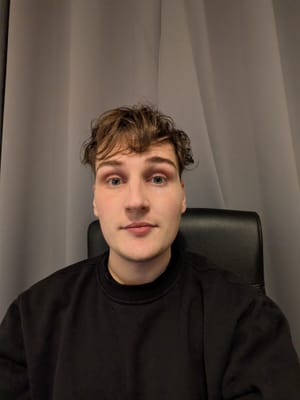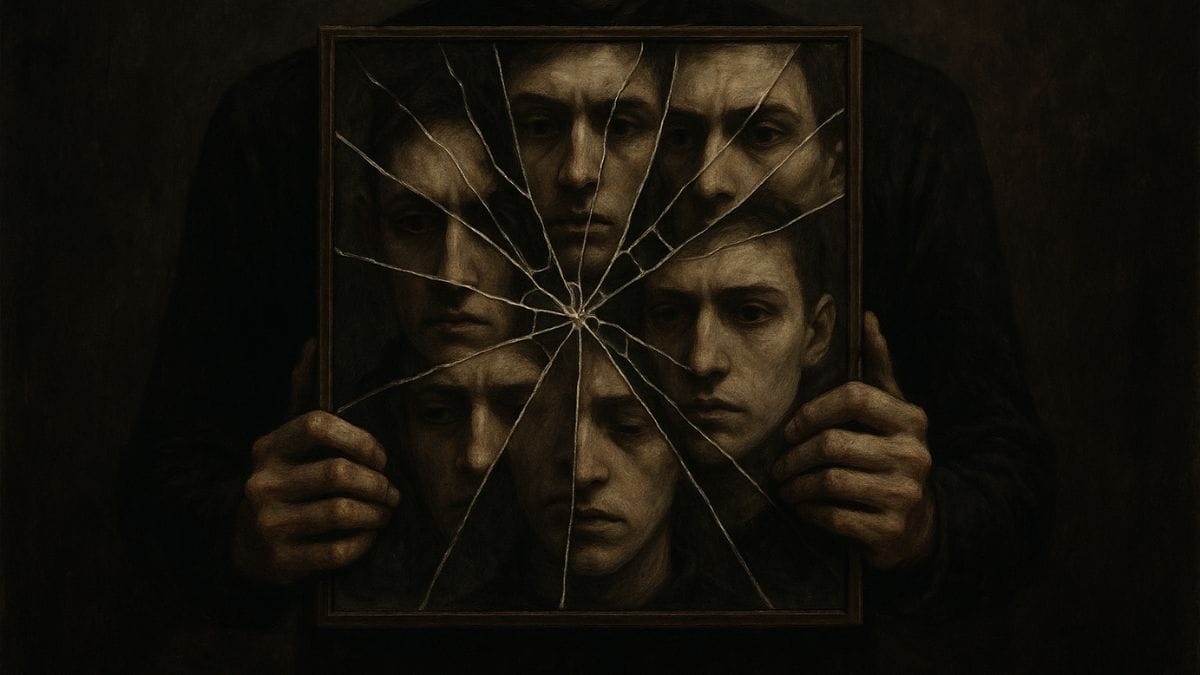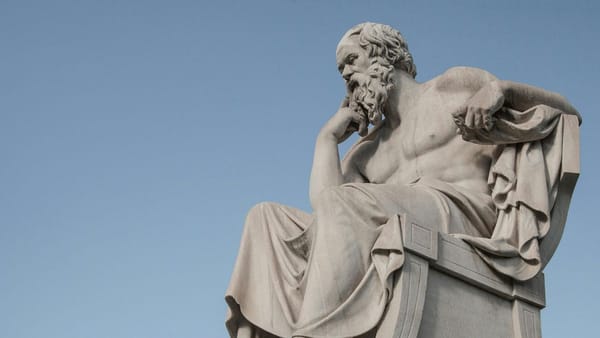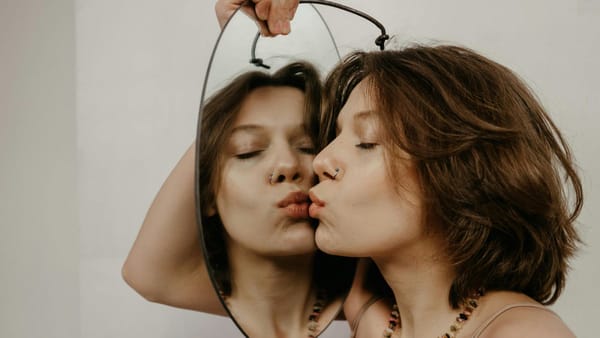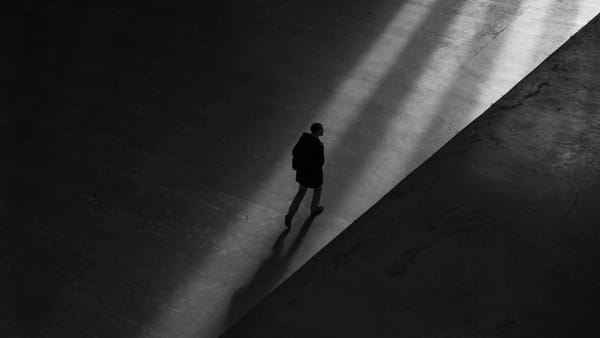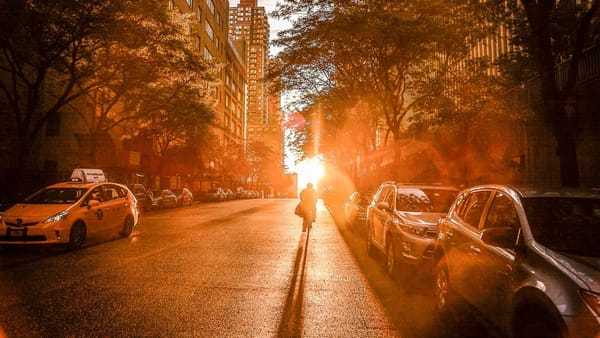Changing oneself might be the most universal human desire. And it’s not even pure vanity or the ego’s scream for greatness — at least not always. In a conventional sense, it’s a practical expression of wanting to navigate more gracefully through life. We want to become better parents, better friends, better citizens. We know that we cannot change the world unless we change ourselves, so we strive and experiment with countless methods.
The journey of self-improvement usually begins with the body — going to the gym, practicing yoga, eating clean. If pursued further, it often drifts toward the subtler, the psychological and “spiritual”: subconscious programming, positive affirmations, manifestation. At some point, people discover that they cannot improve themselves merely by doing something, so they switch strategies. They try to do nothing and delegate the process to some “higher” power or self.
The quiet hunger to become someone else
Yet this very attitude is an almost perfect prison for the mind and a glorious trick played by the ego. I remember a beautiful talk between Jiddu Krishnamurti and Allan Anderson in San Diego, where Krishnamurti explained that choice exists only because the mind doesn't see clearly. Because of fog and confusion, the mind believes it can choose between “this” and “that,” imagining that some options are better than others. But a mind that sees clearly has no choice — it simply acts.
In other words, the idea that deep inside there is a “me” (ego) who receives experiences and directs actions is an illusion, a hallucination born of mental fog. Out of this fog comes duality: a little “me” standing against a strange world.
Both choice and change rest on the same illusion. As Schopenhauer wrote: “Man can do what he wills, but he cannot will what he wills.” We act freely, yet the very roots of our desires remain outside our control. Still, life lets us feel as if we choose, and that illusion is enough to keep the play going.
The illusion of choice and the theater of the ego
So, are we doomed to sit idly and watch the script unfold? For the most part, yes — because that is what we secretly want, however harsh our reality appears.
After all, life is not a problem to be solved but an experience to be lived. Before birth, there was nothing. Now, there is something. However difficult, however painful this “something” might be, we are already on the profit side — and in the long run, the experience is rather neutral, neither punishment nor blessing.
I know many people in their thirties who have finally stopped fighting with life. Looking back, they realize that every rejection, every heartbreak, and every illness has shaped them into who they are today. Even if their situation is far from ideal, they marvel at how mysterious life is, and they let go — even if just a little.
And when we begin to see more deeply who we are, we discover a freedom that no circumstance can touch. It’s not psychological escapism but a lived connection with what lies behind the mask of persona, ego, and illusion. In Sanskrit, this reality is called Sat-Chit-Ananda — existence, consciousness, bliss. It does not change. It simply is.
From the perspective of the ego — the citizen of this dreamland called life — we cannot change ourselves in any possible way. From other perspectives, it is still true if we cling to the word “change,” which implies, in fact, a non-existent choice between “this” and “that.”
Yet, an ancient Chinese school of Taoism offers another angle: Wu Wei, the art of effortless action, of doing nothing yet letting everything flow. Just as a wave cannot swim against its own stream, the ego cannot change itself. But if the wave relaxes, the stream carries it exactly where it needs to go.
When letting go becomes the only true change
This is the paradox: it’s not that nothing ever shifts — it’s only that the ego cannot make it happen. What we call “change” is really just life flowing as it always has, while our illusion of control falls away.
This is very different from the “surrender” you often hear in manifestation teachings, where people try to let go only so they can get what they want. That is still the ego, disguised as surrender, secretly negotiating for an outcome. True surrender has no agenda. It’s not about becoming richer, healthier, or happier. It’s about stepping aside and letting life live itself through us.
These ideas may sound abstract, but for me, they became real through practice. That’s why I see meditation and fasting not as techniques but as gestures of trust in the life process. They are not about doing or fixing. They are simply ways I have found to stop interfering.
When I sit in meditation, I am not trying to silence my mind or reach bliss. I am only sitting. At first, the sense of body dissolves, then the story of “who I am.” It can feel terrifying — “What if I forget myself?” — and it’s natural to snap back. But if I stay, I discover what deep sleep hides: a space of nothingness that is not loss but pure beauty.
When I fast, I am not trying to achieve clarity or discipline. I am simply trusting the body. For me, after about twenty hours, energy rises rather than falls. When autophagy begins, there is a surprising sense of renewal, as if the body has been waiting for me to stop feeding it so it can finally do its work. Of course, fasting isn’t for everyone and should be done carefully, but I can only speak from my experience: it showed me that the body is far wiser than my plans for it.
Both practices, for me, became small acts of faith in the life process. They remind me that I don’t have to hold everything together. Life already does that.
Returning to what was never lost
And here lies the beauty: when I stopped trying to change myself, I discovered something far simpler happening — an adjustment to what always was. As Carl Jung suggested, we begin life identified with the persona, living through the opinions of others and seeking approval. With age, we develop an ego, but the ego too is mostly a product of circumstances, not freedom. If we let go of that ego, if we allow ourselves to be lost again, we may undo the unnecessary projections and return to who we always were. This is what the spiritual process is really about — to remove the fog and simply act as it is.
Before my own journey, I was much like everyone else. I was arrogant, dreaming of success and recognition, conditioned to prove my greatness because that is what society demands. But through a wild sequence of random events, I returned to roots I had almost forgotten.
I regained my love for philosophy, began to write, and even rediscovered playful sides of myself — like dance, which I had trained a little as a child, left behind as a teenager, and returned to in my early twenties, when it became an unlikely light in a dark time. Even now, in my thirties, I find myself experimenting with choreography. Philosophy, writing, and movement were some of the forms it took, but really, it could have been anything. What mattered was that life carried me back to what felt most alive, beyond roles or masks.
Not in the conventional sense — no sudden flourishing bank account or worldly success. But life itself became more alive, more authentic, more mine. This was always there; only the weight of environment and indoctrination had made me play other roles, wear masks, and pretend to be someone else.
So maybe we cannot change ourselves at all. But when we let go, when we stop fighting and start trusting, we naturally align with life. What shifts is not who we are, but how clearly we live as what we always were.
We find ourselves exactly where we need to be — not perfect, but whole.
And perhaps that is the only real transformation — not becoming something new, but returning to what we always were.
Thanks for reading. If you enjoy my work and want more like this, consider supporting it. This space exists thanks to readers — essays and research take time. You can subscribe, contribute, or explore reading lists I curate. Every bit of support helps.
